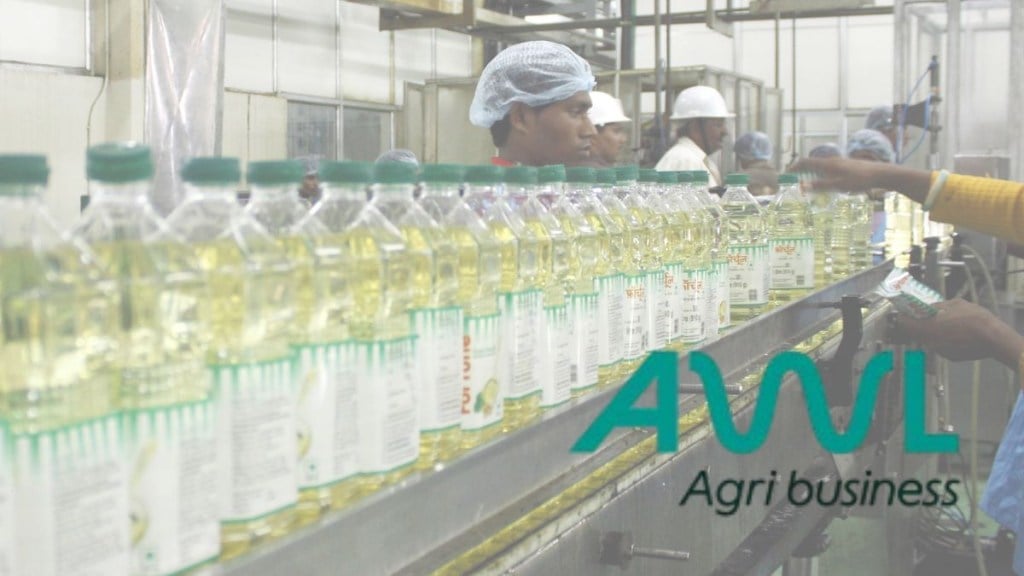AWL Agri Business Ltd on Tuesday released its fiscal first quarter earnings report with profit at Rs 236.43 crore. This was 24.51 per cent lower than Rs 236.43 crore recorded during the corresponding quarter of previous financial year. It posted revenue from operations at Rs 17,058.65 crore, up 20.52 per cent as against Rs 14,153.85 crore recorded during the first quarter of FY25, driven by higher realizations in edible oil.
On an LTM basis, the company delivered operating EBITDA of Rs 2,384 crore. In Q1FY26, operating EBITDA stood at Rs 519 crore.
The FMCG major experienced a challenging quarter due to a convergence of headwinds – muted consumer demand, strategic consolidation of regional rice operations, one-off G2G rice business in the base year, and fluctuations in edible oil prices.
These dynamics, it added, led to a 5 per cent on-year decline in overall volumes in Q1 with the rice category being the key drag. Encouragingly, core categories delivered healthy volume growth.
Angshu Mallick, MD & CEO, AWL Agri Business Ltd, (formerly, Adani Wilmar), said, “The Company witnessed a temporary volume decline, primarily influenced by the consolidation of its regional rice operations and muted consumer demand. Encouragingly, the core categories delivered healthy volume growth, and revenue rose 21 per cent YoY, driven by higher edible oil realizations.”
AWL Agri Q1: Performance across verticals
In terms of segments, revenue from Edible oils rose 26 per cent YoY, and Industry Essentials posted a 12 per cent increase. Food & FMCG revenue declined by 8 per cent due to impact from the consolidation of non-basmati rice business, one off G2G rice business in base year and lower rice exports.
Edible oils, during the quarter, posted revenue growth of 26 per cent on-year to Rs 13,415 crore while volumes declined by 4 per cent YoY. Excluding Palm oil, AWL Agri said, branded volume grew in low single digits, supported by continued strong performance in mustard oil. In terms of consumer demand, the company posted muted growth on a 30 per cent increase in raw-material prices compared to the base quarter. Branded sales volumes remained under pressure, largely due to sluggish palm oil sales driven by its relatively higher prices. This led to a 135bps decline in the palm oil market share, primarily within the value-for-money segment, contributing to an overall market share decline of 45 bps.
In Q1, the Food & FMCG segment posted Rs 1,414 crore in revenue, down 8 per cent YoY due to multiple transient headwinds. However, excluding the G2G rice business, revenue from the Food & FMCG segment increased by 4 per cent YoY. The G2G business, involving rice sales to government-appointed export agencies, generated Rs 316 crore in FY25 but was largely discontinued after Q3FY25. “The consolidation of our branded regional rice (non-basmati) business was an additional drag on Q1 sales,” the company said.
The Industry Essentials volume grew by around 6 per cent YoY driven by the growth in de-oiled cake business. Oleochemicals and Castor Oil & derivative volumes were largely flat in Q1, primarily due to near full utilization of capacity. The segment has crossed Rs 2,000 crore quarterly revenue milestone in Q1, recording Rs 2,230 crore, up by 12 per cent YoY. In Castor Oil, AWL Agri remained India’s highest exporter and expanding our market.
AWL Agri Q1: Distribution network
On the distribution front, the company’s direct retail reach grew by 18 per cent YoY to 8.7 lakh outlets, with rural town coverage of around 55,000 — a ten-fold rise from FY22. “Having achieved our rural reach target of 50,000 towns, we are now primarily focused on driving higher throughput from the newly added towns and outlets,” the company said in a regulatory filing.
For AWL Agri, alternate channels generated over Rs 3,900 crore in revenue in the last twelve months ending June 2025, driven primarily by volume growth in Quick Commerce, which saw approximately 75 per cent growth in Q1.
Angshu Mallick said, “Our focus on improving the profitability in the Food & FMCG segment has led to highest-ever PBT of 75 crore in Q1, with PBT margin of 5.3 per cent. The reduction in customs duty on crude edible oils is expected to positively impact domestic refiners by boosting sales and curbing refined oil imports from both SAARC nations and edible oil producing countries.” Additionally, he added, the normalization of palm oil prices is likely to support volume growth in the coming quarters.

